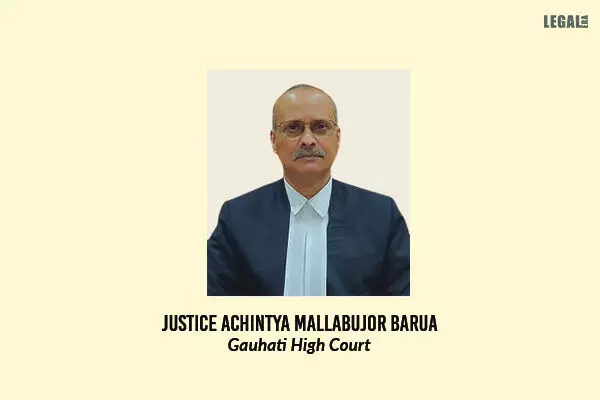- Home
- News
- Articles+
- Aerospace
- Artificial Intelligence
- Agriculture
- Alternate Dispute Resolution
- Arbitration & Mediation
- Banking and Finance
- Bankruptcy
- Book Review
- Bribery & Corruption
- Commercial Litigation
- Competition Law
- Conference Reports
- Consumer Products
- Contract
- Corporate Governance
- Corporate Law
- Covid-19
- Cryptocurrency
- Cybersecurity
- Data Protection
- Defence
- Digital Economy
- E-commerce
- Employment Law
- Energy and Natural Resources
- Entertainment and Sports Law
- Environmental Law
- Environmental, Social, and Governance
- Foreign Direct Investment
- Food and Beverage
- Gaming
- Health Care
- IBC Diaries
- In Focus
- Inclusion & Diversity
- Insurance Law
- Intellectual Property
- International Law
- IP & Tech Era
- Know the Law
- Labour Laws
- Law & Policy and Regulation
- Litigation
- Litigation Funding
- Manufacturing
- Mergers & Acquisitions
- NFTs
- Privacy
- Private Equity
- Project Finance
- Real Estate
- Risk and Compliance
- Student Corner
- Take On Board
- Tax
- Technology Media and Telecom
- Tributes
- Viewpoint
- Zoom In
- Law Firms
- In-House
- Rankings
- E-Magazine
- Legal Era TV
- Events
- Middle East
- Africa
- News
- Articles
- Aerospace
- Artificial Intelligence
- Agriculture
- Alternate Dispute Resolution
- Arbitration & Mediation
- Banking and Finance
- Bankruptcy
- Book Review
- Bribery & Corruption
- Commercial Litigation
- Competition Law
- Conference Reports
- Consumer Products
- Contract
- Corporate Governance
- Corporate Law
- Covid-19
- Cryptocurrency
- Cybersecurity
- Data Protection
- Defence
- Digital Economy
- E-commerce
- Employment Law
- Energy and Natural Resources
- Entertainment and Sports Law
- Environmental Law
- Environmental, Social, and Governance
- Foreign Direct Investment
- Food and Beverage
- Gaming
- Health Care
- IBC Diaries
- In Focus
- Inclusion & Diversity
- Insurance Law
- Intellectual Property
- International Law
- IP & Tech Era
- Know the Law
- Labour Laws
- Law & Policy and Regulation
- Litigation
- Litigation Funding
- Manufacturing
- Mergers & Acquisitions
- NFTs
- Privacy
- Private Equity
- Project Finance
- Real Estate
- Risk and Compliance
- Student Corner
- Take On Board
- Tax
- Technology Media and Telecom
- Tributes
- Viewpoint
- Zoom In
- Law Firms
- In-House
- Rankings
- E-Magazine
- Legal Era TV
- Events
- Middle East
- Africa
Guwahati High Court allows the taxpayer to pay GST dues in installments

Guwahati High Court allows the taxpayer to pay GST dues in installments
It advised the department to sympathize with the petitioner
In a recent judgment; the Guwahati High Court has allowed a taxpayer to pay the Goods and Services Tax (GST) dues in 48 equal installments. This was done considering the petitioner firm's financial condition.
The petitioner, Veteran Facility Management Services Private Limited had approached the court claiming that it was going through financial difficulties. Hence, it would not be possible for the firm to pay the entire amount, plus the interest and penalty in 36 installments.
Since the Chief Commissioner of the GST department had set the maximum limit to pay the installments that were not possible for the petitioner, the court showed leniency towards the latter.
As per the Circular dated 28 February 2015 of the GST department, it is empowered and has the discretion of granting sanctions to pay the arrears in up to a maximum of 24 monthly installments. In addition, the Chief Commissioners have the authority to increase the installments up to 36 at the most.
Ruling in favor of the petitioner, Justice Achintya MallaBujor Barua held, "Although there may be an inherent power of the court under Article 226 of the Constitution of India to use a discretion, at the same time when it is statutorily provided by the departmental authorities that the maximum permissible installments be 36, the court ought not to randomly extend such installments beyond 36 in the guise of exercising discretionary powers."
But at the same time, the court stated, "We also take note that if further installments are not allowed to the petitioner firm, it would be unable to pay the tax due and that may result in the sustenance of the order of cancellation of the firm's registration. This would mean an end to its business and also be the end of the GST department to have any tax from the petitioner in the form of the present business."
The court, thus, asked the GST department if the payment could be extended up to 48 installments.
It held, "Without taking any specific view on the aforesaid aspect and in order to provide some succor to the petitioner firm so that they can remain in the business they are presently undertaking, it is provided that the amount of Rs.2,58,30,801 plus the interest and the penalty that may be applicable under the law be evaluated by the department. The assessed amount could be equally divided by 48 and the monthly amount payable be communicated to the petitioner. The petitioner would have to pay the installments by the 7th of each month."



